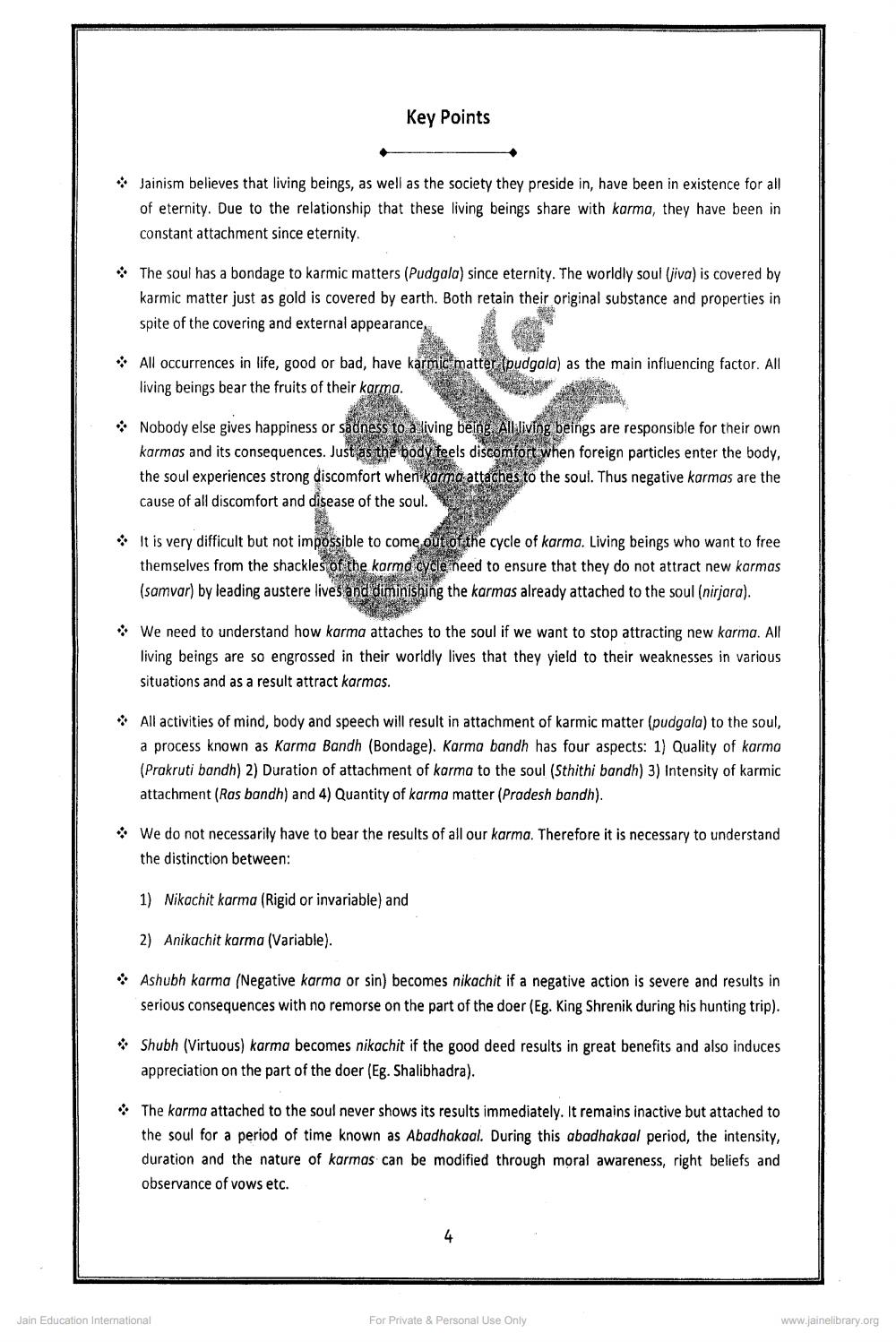________________
Key Points
Jainism believes that living beings, as well as the society they preside in, have been in existence for all of eternity. Due to the relationship that these living beings share with karma, they have been in constant attachment since eternity.
The soul has a bondage to karmic matters (Pudgala) since eternity. The worldly soul (jiva) is covered by karmic matter just as gold is covered by earth. Both retain their original substance and properties in spite of the covering and external appearance
All occurrences in life, good or bad, have karmic matter (pudgala) as the main influencing factor. All living beings bear the fruits of their karma.
Nobody else gives happiness or sadness to a living being. All living beings are responsible for their own karmas and its consequences. Just as the body feels discomfort when foreign particles enter the body, the soul experiences strong discomfort when karma attaches to the soul. Thus negative karmas are the cause of all discomfort and disease of the soul.
•
It is very difficult but not impossible to come out of the cycle of karma. Living beings who want to free themselves from the shackles of the karma cycle need to ensure that they do not attract new karmas (samvar) by leading austere lives and diminishing the karmas already attached to the soul (nirjara).
We need to understand how karma attaches to the soul if we want to stop attracting new karma. All living beings are so engrossed in their worldly lives that they yield to their weaknesses in various situations and as a result attract karmas.
All activities of mind, body and speech will result in attachment of karmic matter (pudgala) to the soul, a process known as Karma Bandh (Bondage). Karma bandh has four aspects: 1) Quality of karma (Prakruti bandh) 2) Duration of attachment of karma to the soul (Sthithi bandh) 3) Intensity of karmic attachment (Ras bandh) and 4) Quantity of karma matter (Pradesh bandh).
We do not necessarily have to bear the results of all our karma. Therefore it is necessary to understand the distinction between:
1) Nikachit karma (Rigid or invariable) and
2) Anikachit karma (Variable).
Ashubh karma (Negative karma or sin) becomes nikachit if a negative action is severe and results in serious consequences with no remorse on the part of the doer (Eg. King Shrenik during his hunting trip).
*
Shubh (Virtuous) karma becomes nikachit if the good deed results in great benefits and also induces appreciation on the part of the doer (Eg. Shalibhadra).
The karma attached to the soul never shows its results immediately. It remains inactive but attached to the soul for a period of time known as Abadhakaal. During this abadhakaal period, the intensity, duration and the nature of karmas can be modified through moral awareness, right beliefs and observance of vows etc.
Jain Education International
For Private & Personal Use Only
www.jainelibrary.org




